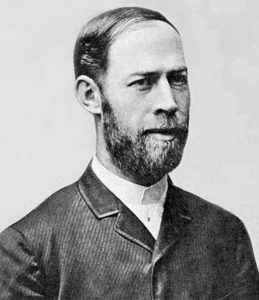Generator Basics: What the Hertz?
The Basics of Generator Frequency
When you have to buy a generator, you need to know what output frequency it has. When we talk about power systems, we know generator hertz is a critical part of the conversation, but why? Learn about generator frequency and what Hz you should look for when you buy a generator.
What Is Hertz?
In 1888, a German physicist named Heinrich Rudolf Hertz discovered electromagnetic waves. Hertz (Hz) then became the basic unit of frequency. What is frequency, and why do we want to measure it? Frequency is the number of repeated occurrences in a unit of time. With motors, frequency refers to the number of cycles per second. A standard measurement for engine power is revolutions per minute (rpm).
Frequency is an important figure because it tells us how much power an engine can deliver. Conflicting frequencies in a machine can lead to instability and equipment damage, which is where generator Hz comes in.

What Hz Rating Do I Need?
Around the world, generator sets run at 50 or 60 Hz. Most of North, Central and South America and parts of Asia use 60 Hz. You’ll find the 50 Hz utility standard in Europe, Africa and parts of South America and Asia.
Generators will create power with a two- or four-pole system. Each time these poles complete a full rotation, they generate one cycle of AC power. In a two-pole system, the poles need to spin 60 times per second to create a 60 Hz generator. Your frequency output has to match the rpm of your main supply. Since 60 rpm equals 1 Hz, you should use a 60 Hz generator for a 3,600 rpm engine.
In a 50 Hz generator, the same rules apply. Rather than the poles spinning 60 times a second, they’ll spin 50 times. For compatibility, an engine must have 3,000 rpm to work with a 50 Hz generator.
Variable Speed Generators
Sometimes, a power grid may require varying frequencies. In these instances, a single 60 or 50 Hz generator won’t create the stable power balance you need to support the grid.
A variable speed genset uses advanced control technology to alter engine speed and deliver power to the load at specific frequencies and voltages. This action balances the load and boosts performance overall. These generator sets can also reduce emissions and increase fuel efficiency.
These variable speed gensets have grown in popularity as alternative energy systems gain traction. Wind turbines, for example, will not deliver consistent power, so a variable speed generator will fill in those gaps and maintain stability.
Count on Woodstock Power Company for Your Generator Needs
At Woodstock Power Company, we offer an extensive selection of generators to people around the country. We buy and sell new, used and surplus generators wherever you are, and we understand the importance of matching your generator to your power grid. Work with us to find the right generator for your project to ensure safety and efficiency around the clock.
Follow us on LinkedIn, YouTube, Facebook, and Twitter for more info about commercial generators!

